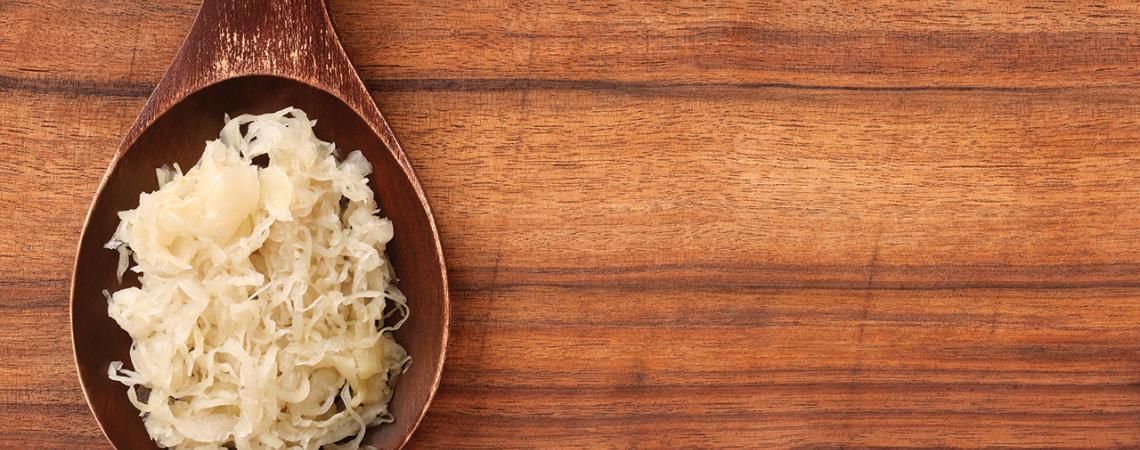Sauerkraut is one of the best-known probiotic-rich foods. (Photo by Getty Images)
The gastrointestinal tract is one of the more important parts of your body to keep healthy, yet it’s one of the easiest to ignore.
A condition known as “leaky gut,” where the lining of the small intestine becomes damaged, is becoming more common. The condition allows undigested food particles and bacteria to “leak” into other areas of the body, causing symptoms ranging from digestive upset and nutritional deficiencies to anxiety and autoimmune conditions. While there are many areas that need to be addressed to combat leaky gut, probiotics are a must in healing the gut and improving overall health. Probiotic supplements are widely available, but a DIY approach can give you a variety of probiotic strains in a delicious alternative to swallowing a pill.
Sauerkraut is one of the easiest probiotic foods to make, as it requires minimal prep time and does most of the work on its own. The trick is in weighing ingredients so that the proportion of salt to cabbage is exact. As the salt pulls water out of the cabbage, good bacteria grow and thrive while the bad bacteria die off. In 1 to 4 weeks, the kraut is ready to eat or can be placed in the refrigerator for up to a year. As little as a forkful of kraut or a teaspoon or two of the brine daily provides a sufficient dose of probiotics.
A close relative to yogurt, kefir is a tangy, creamy probiotic beverage made from milk and kefir grains, which are live, active cultures consisting of yeast and bacteria. Within 24 hours of combining them, the result is comparable to drinkable yogurt with a bit of “fizz.”
Kombucha is a nondairy fermented beverage made from water, tea, sugar, and SCOBY (an acronym for “symbiotic culture of bacteria and yeast”). When placed in a jar to ferment for 7 to 10 days, the SCOBY metabolizes most of the sugar to produce gas, resulting in a fermented, slightly sweet, sparkling probiotic beverage. For a variety of flavors, fruit juices can be added to basic kombucha.
Making probiotic foods and beverages need not be intimidating. After all, most of the work is taking place without any real effort. The main requirement is patience until it’s time to take that first taste.









